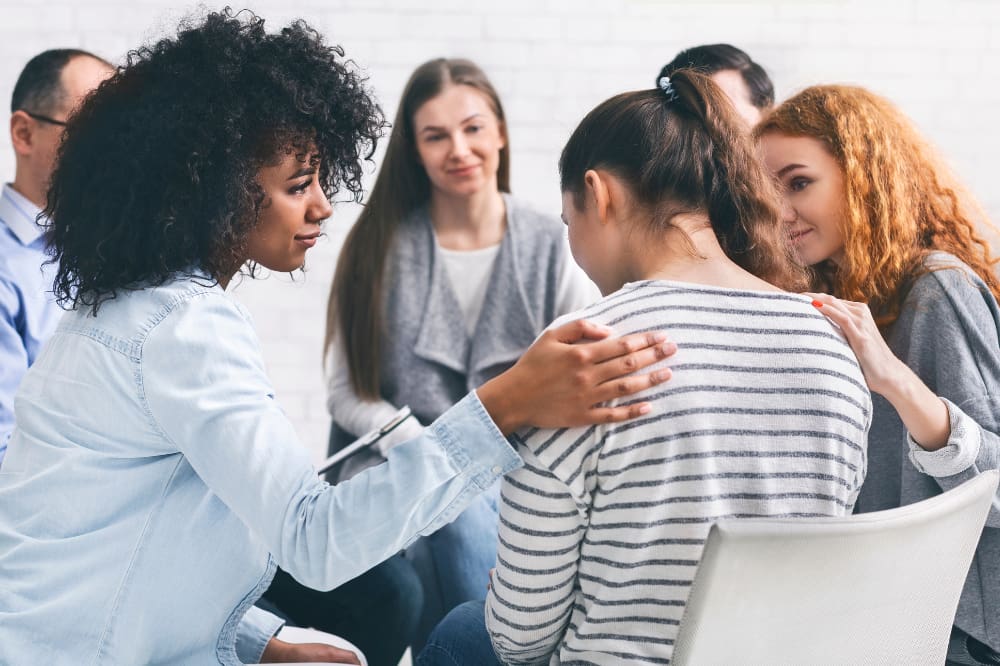Do you have a family member or friend who seems trapped in the cycle of compulsive gambling? Maybe you've noticed their behaviour changing, their finances reducing, or their mental health suffering.
It can be tough to watch someone you care about struggle with a gambling addiction, especially when they're in denial about the problem. The good news is that there is hope - and you can make a difference in their journey towards recovery.
Here are some of the key steps you can take to support your loved one in their recovery and make a positive difference in their life.
Step 1: Understand What Compulsive Gambling Is
First things first, before you can help your loved one, you need to understand what gambling addiction is. It’s much more than simply enjoying a game or the occasional trip to a casino - it’s a serious mental health problem that can have severe consequences.
Compulsive gambling, also known as gambling addiction, is characterised by the inability to resist the urge to gamble, despite the negative consequences. It often goes hand in hand with other mental health issues, and it can lead to financial ruin, relationship problems, and more. The good news is that people can recover from gambling addiction.
Step 2: Learn and Recognise The Signs
Now you have a brief understanding of what gambling addiction is, let’s explore the signs of a gambling problem. Some signs to look out for that suggest your loved one may be struggling with compulsive gambling include:
- Secretive behaviour
- Lying about their gambling activities
- Borrowing money frequently
- Neglecting their responsibilities
Keep an eye out for any unusual behaviour related to money management and sudden changes in mood or habits. Once you identify these signs, it’s time for the next step…
Step 3: Start a Conversation
Now, it’s time to start a conversation. We understand that approaching your loved one about their gambling behaviour can be daunting - especially if they are in denial. However, it’s an important step if you want to help them.
When you open the conversation, remain calm and compassionate. Choose a time when they're calm and receptive, and express your concerns without judgement. Let them know that you're coming from a place of love and that you're here to support them through this challenging time.
Step 4: Offer Your Support
Once you have started the conversation, offer your unwavering support. Let your loved one know that you're there to help them get through this journey towards recovery.
Overcoming addiction can be difficult, but the support of loved ones can make it a little easier. However, they may need more than just your support. Encourage them to seek professional help from a mental health professional who specialises in gambling addiction. Additionally, you could suggest that they join support groups like Gam-Anon, where they can connect with others who understand what they're going through.
Step 5: Assist in Managing Finances
Gambling addiction can completely destroy a person’s finances - so financial management is key to helping them regain control of their life. Work together with your loved one to create a budget and establish boundaries around money.
This may involve managing money - for example, limiting access to funds, closing joint accounts, and seeking support from a financial advisor if necessary. This can be tough, and you may feel like you’re being harsh, but in the long run, it will help prevent further financial damage.
Step 6: Explore Treatment Options
There are various treatment options available for those struggling with gambling addiction. Encourage your loved one to explore these options and find what works best for them.
Treatment for gambling addiction may include therapy, medication, support groups, or a combination of these approaches.
Remember to be patient and supportive as they begin this process, and remind them that seeking help is a sign of strength, not weakness. You can empower your loved one to seek the treatment they deserve!
Step 7: Address Any Underlying Issues
Gambling addiction often coexists with other mental health problems. To help your loved one, encourage them to address any underlying issues that may be contributing to their gambling behaviour. This may involve seeking therapy or counselling to work through past traumas, stressors, or other triggers. Therapy can be extremely helpful when recovering from addiction, whether it be drug addiction, alcohol addiction, or gambling addiction.
At Rehubs, we can offer your loved one group therapy and one-to-one therapy, from the comfort of their own home.
Enquire today to get started! We’re here for you and your loved one.
Step 8: Help Them to Build a Support Network
Addiction recovery is a journey that requires a strong support network. There is support out there for your loved one, and it doesn’t fall completely on your shoulders.
Encourage your loved one to reach out to family and friends for support, and consider attending counselling sessions or support group meetings together. A strong network of understanding and empathy can make a huge difference in their recovery journey.
Step 9: Prepare for Relapse
Relapse is a common part of the recovery process - so be sure to approach this with compassion and understanding if it does occur. Although it may make you feel angry or let down when you see a loved one slip back into old habits, remind them that it's not a sign of failure but an opportunity to learn and grow.
Encourage them to seek support from their therapist, support group, or loved ones and help them refocus on their journey towards recovery. Relapse isn’t the end of the journey - it’s simply a setback.
Step 10: Celebrate Their Progress
Celebrate the progress that your loved one makes along the way! Even taking the first step and addressing their issue is a huge achievement.
Recovery from gambling addiction is a challenging journey, and every milestone deserves recognition. Whether it's a day, a week, or a month without gambling, acknowledge their efforts and remind them of how far they've come! This can motivate them to stick to their recovery plan and maintain a gambling-free life.
The Final Step: Seek Support With Rehubs
Supporting a loved one struggling with gambling addiction can be tough, but it's also incredibly rewarding.
At Rehubs, we are here to help. Our online rehab platform can help your loved one turn over a new leaf and stop gambling for good. We don’t just focus on the here and now - we focus on long-term, sustained recovery.
Enquire about our 28-day intensive rehab program today!
Share this
You May Also Like
These Related Stories

How To Detox From Cannabis At Home

Binge Drinking Vs Alcoholism: Are They Similar?



No Comments Yet
Let us know what you think